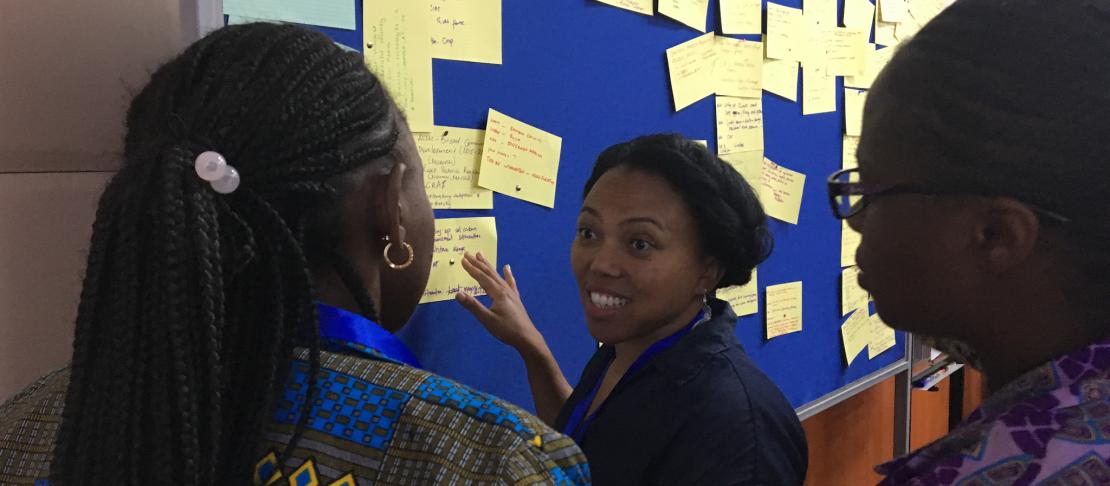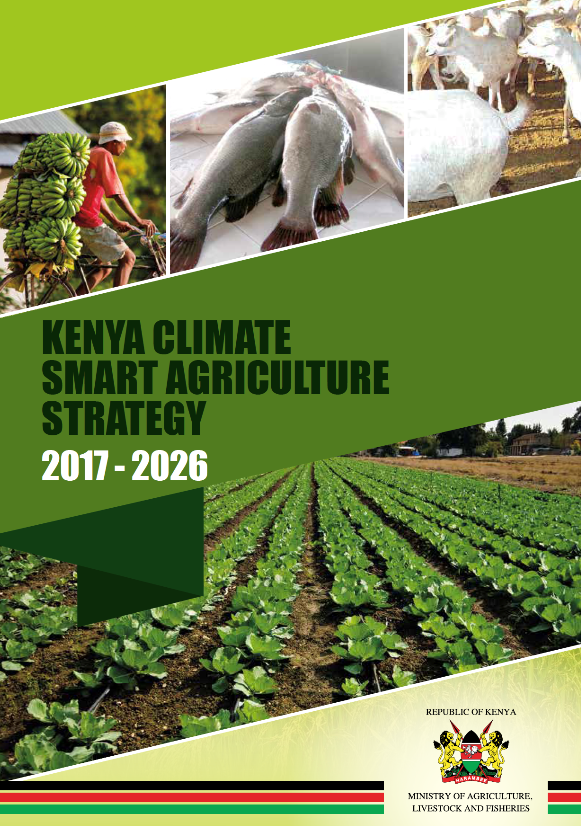Stakeholders come together in Nairobi to create a vibrant platform for climate-smart agriculture across Kenya

Key stakeholders, active in Kenya’s climate-smart agriculture space, gathered in Nairobi to create a platform for climate-smart actions in the country’s agriculture sector.
The Kenya Climate Smart Agriculture Implementation Framework (KCSAIF), whose implementation will span 2018-2027, builds off Kenya’s Climate-Smart Agriculture Strategy for 2017-2026.
The KCSAIF sets out modalities and creates an enabling framework to build an inclusive institutional environment for the coordination and implementation of CSA actions, strategies, and technologies across Kenya.
More than 30 agricultural experts, gathered in Nairobi to create a dynamic and inclusive platform for exchanging information on climate-smart agriculture (CSA) activities in Kenya. The gathering was hosted by the International Livestock Research Institute (ILRI) on February 12, 2019. The participants came from diverse backgrounds including government, research, academia, development partners, non-governmental organizations, the private sector and civil society organizations.
This arrangement, currently known as the Multi-Stakeholder Platform (MSP), aims to facilitate the application of Kenya’s Climate Smart Agriculture Implementation Framework (KCSAIF). This framework was launched by the Kenyan Ministry of Agriculture, Livestock, Fisheries and Irrigation (MOALFI) in October 2018.
To achieve the targets set out in the framework, Biovision Foundation and the CGIAR Research Program on Climate Change, Agriculture and Food Security (CCAFS) will collaborate with the Climate Change Unit of Kenya’s MOALFI, along with other relevant stakeholders, to establish the MSP.
Creating the foundations to mainstream climate-smart agriculture in Kenya
Following a welcome by Dawit Solomon, CCAFS Regional Program Leader for East Africa, John Recha of CCAFS gave a comprehensive introduction to the concept of climate-smart agriculture so that everyone would be on the same page. Afterward, Lucy Ng’ang’a from the Climate Change Unit of MOALFI presented the concept of the platform.
Exchanging information on existing #climatesmart activities in Kenya at the first meeting of the CSA multistakeholder platform @CGIARclimate @ILRI @FutureForAll pic.twitter.com/7iLdoMEx2G
— Laura Cramer (@MamaNjihia) 12. Februar 2019
The principal aim of the MSP is to create a framework that facilitates the dissemination, coordination and sharing of CSA programmatic planning and implementation, as well as receiving and incorporating feedback from participating stakeholders. The MSP is grounded in the following objectives:
- Support the profiling of CSA actions and interventions in the country.
- Strengthen capacities of institutions in planning, implementation, monitoring and evaluation as well as reporting of CSA across stakeholders at all levels.
- Identify opportunities for investment in CSA by platform members and others.
- Support the gathering of data to build an evidence base for decision making and policy development.
After the introduction, participants split into small groups to discuss the concept. The groups identified critical and missing elements, priorities as well as points requiring further specification.
Exchanging information on existing #climatesmart activities in Kenya at the first meeting of the CSA multistakeholder platform @CGIARclimate @ILRI @FutureForAll pic.twitter.com/7iLdoMEx2G
— Laura Cramer (@MamaNjihia) 12. Februar 2019
Most groups proposed the inclusion of thematic working groups within the platform that would address sub-topics of specific interest. They also said that linkage with the counties needs to be sorted out because much of the implementation of the Kenya CSA strategy will happen at the county level. The importance of having an inclusive platform that takes on board the needs of youth, women and marginalized groups was also emphasized.
After a break, participants set up an initial stock-taking of on-going or recently completed CSA activities in Kenya that the participants were aware of. The information gathered forms the start of the first activity of the platform, profiling CSA initiatives in Kenya. This starting point shows what is happening already. It also allows to learn from each other and avoid duplication of efforts.
Participants at the Kenya Climate Smart Agriculture Multi Stakeholder Platform currently taking place @ILRI Nairobi. Members are discussing the structure, elements & goals of the platform. pic.twitter.com/WQMII27oaU
— Catherine Mungai (@catmungai) 12. Februar 2019
At the conclusion of the meeting, several participants expressed interest in joining representatives from MOALFI-CCU, Biovision and CCAFS on the MSP interim steering committee to help continue guiding the design of the platform.
The next meeting will be held in a few months’ time to agree on the design of the platform and move forward with the other planned activities.
Read more:
- News update: Kenya launches framework to implement climate-smart agriculture
- News update: Kenya launches Climate-Smart Agriculture Strategy for 2017-2026
See some photos from the workshop on Flickr:
The KCSAIF was produced by MOALFI in collaboration with the Ministry of Environment and Forestry with support from the Department for International Development (DFID), the United Nations Development Programme (UNDP) and the Food and Agriculture Organization of the United Nations (FAO). Grunding work for the product originates from the Integrating Agriculture in National Adaptation Plans project (NAP-Ag), the New Partnership for Africa's Development (NEPAD), the Common Market for Eastern and Southern Africa (COMESA) and the CGIAR Research Program on Climate Change, Agriculture and Food Security (CCAFS).
Laura Cramer is the Science Officer at the CCAFS Flagship on Priorities and Policies for CSA. Catherine Mungai is the Partnerships and Policy Specialist at CCAFS East Africa. Nancy Rapando is a Project Manager at Biovision.




